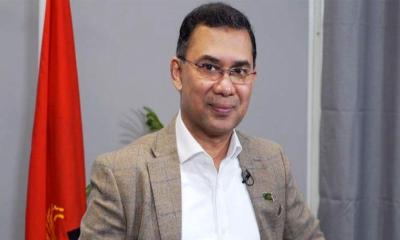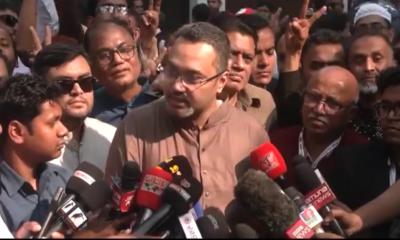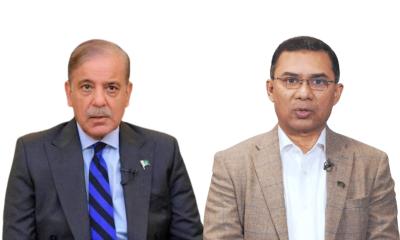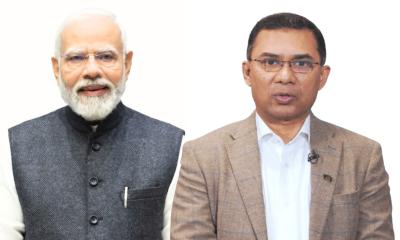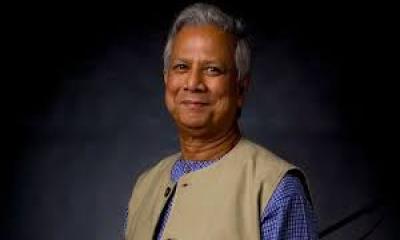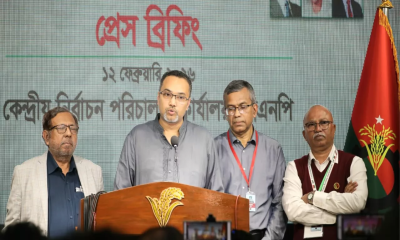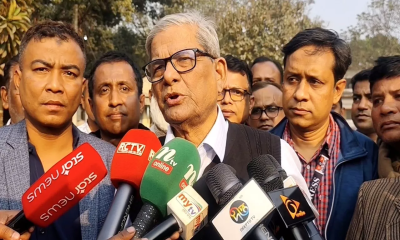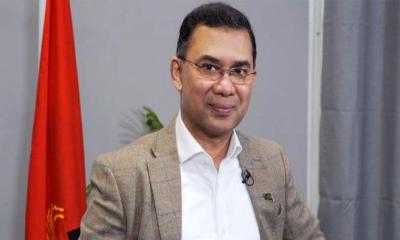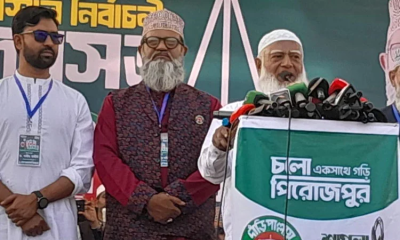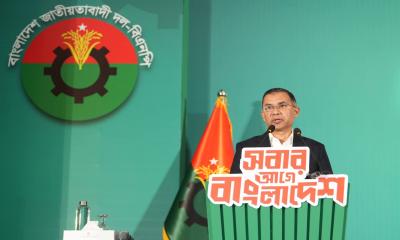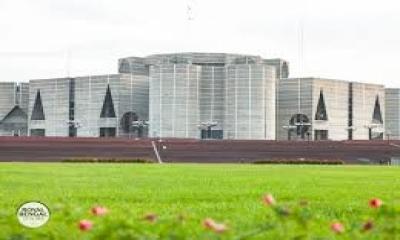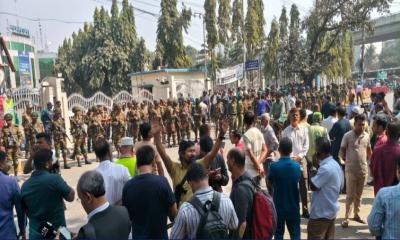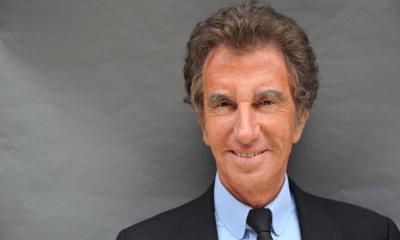A two-day meeting of leading global economists and finance leaders convened by the COP28 Presidency has delivered consensus on the next key steps needed to establish a new framework for international climate financing and to drive progress at COP28 and beyond, reports UNB.
Economists from the Independent High-Level Expert Group (IHLEG) met with figures from leading global institutions including the World Bank, IMF, ECF and IFC, the COP28 and COP27 Presidencies and UN Climate Change High-Level Champions for two days of talks in Abu Dhabi on August 15-16.
Those assembled agreed that they will come to COP28 with recommendations on a new framework for international climate finance, as well as a definitive roadmap on how to implement the recommendations.
Particular areas of focus for the new framework will include addressing debt distress in vulnerable countries, and the role of the private sector in delivering increased financing. Here, the group recognised that although private finance flows are growing, they need to grow much faster to meet the USD 2.4 trillion total investment estimated to be needed annually by 2030 to address climate change in emerging markets and developing economies.
The roadmap will be designed to guide all institutions – UN agencies, the IMF, WB, regional MDBs, national governments and the private sector – around short and long-term plans to achieve the Paris Agreement.
Agreement on the roadmap at COP28 will allow leaders across the public, private and third sectors to drive forward a clear plan of action on international climate finance.
All those in the meetings were unanimous in their agreement that financing is fundamental for the delivery of solutions to enable the transition to a net zero, climate-resilient future.
They also agreed that the primary focus of their work would be to rapidly increase international climate finance between now and the end of the decade to support emerging markets’ and developing economies’ mitigation and adaptation initiatives.
The COP-28 President-Designate Dr Sultan Al Jaber opened the meetings with a clear call to action for those attending to deliver "a detailed action-oriented framework and tangible recommendations that lead to real results".
Following the meeting, he commented: "For too long, climate finance has divided the international community and held back progress in tackling climate change and supporting countries most impacted by it. But climate finance is the issue that lies at the core of the COP28 agenda because finance is how we transform goals into reality.”
Lord Nicholas Stern, co-chair of the IHLEG, said: "These meetings have proved to be very fruitful, in large measure due to the leadership of Dr Sultan and the support from his team. We are all in no doubt of the urgency of the challenges, of the scale of the problems that we must tackle, and of the global action necessary to rise to these challenges. This is a moment where all stakeholders must step up, including the MDBs, their shareholders, and the private sector. We will continue to work with the COP28 Presidency to drive forward in the weeks ahead."
Dr Vera Songwe, co-chair of the IHLEG also noted: "Over the last few months every corner of the world has been hit by a climate event. We must act fast, collectively and at scale to turn these climate disruptions into a growth opportunity for people and planet. The IHLEG group, the COP28 president and all the esteemed colleagues gathered here agree that raising the $2.4 trillion will not be sufficient if we do not accelerate implementation. I look forward to a COP28 that will deliver impact."
Kristalina Georgieva, Managing Director of the International Monetary Fund, stated: “The IMF is committed to ensuring climate policy support and finance are reaching those most in need, and I am thankful to the leadership of COP28 for convening this important meeting today. We look forward to partnering with all stakeholders in the lead up to COP28 and working to drive stronger partnerships between the public and private sector for climate success."
The IHLEG meetings in Abu Dhabi were attended by a host of cross-sector senior leaders and actors in international climate finance including:
• H.H. Sheikha Shamma, President and Chief Executive Officer, UAE Independent Climate Change Accelerators (UICCA)
• Larry Summers, economist and former US Treasury Secretary
• Mark Carney, economist and former governor of the Bank of England
• Todd Stern, United States` chief negotiator at the 2015 Paris Climate Agreement
• NK Singh, prominent Indian economist, academician, and policymaker
• Tubiana Laurence, CEO of the European Climate Foundation (ECF)
• Makhtar Diop, managing director of the International Finance Corporation
• Rachel Kyte, 14th dean of The Fletcher School at Tufts University
• Mark Gallogly, investor and climate change activist
• Rania Al-Mashat, Minister of International Cooperation, Egypt
• Mahmoud Mohieldin, Climate Champion, COP27
• Nigel Topping, UN Climate Change High-Level Champion at COP26
• Alain Ebobissé, CEO, Africa50
• Harry Boyd-Carpenter, Managing Director Green Economy and Climate Action, EBRD
• Hamad Sayah Al Mazrouei, CEO, ADGM Registration Authority
The IHLEG develops and presents policy options and recommendations to enable the public and private investment necessary for delivery of the ambitions of the Paris Climate Agreement. Its ultimate goal is to advance a holistic financial framework for resource mobilization to deliver an equitable and efficient climate finance system, as set out in the Paris Agreement and Glasgow Pact and start its implementation.
The COP28 UAE Presidency has named “fixing climate finance” one of its four priority action pillars for COP28, alongside fast-tracking the energy transition, ensuring full inclusivity, addressing lives and livelihoods.
COP28 UAE will take place at Expo City Dubai from November 30 to December 12, 2023. The conference is expected to convene over 70,000 participants, including heads of state, government officials, international industry leaders, private sector representatives, academics, experts, youth, and non-state actors.




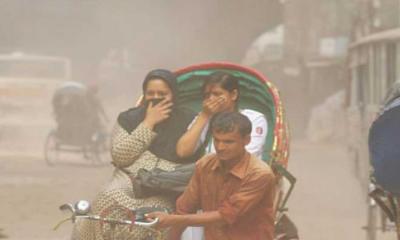
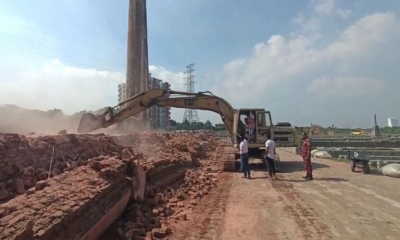
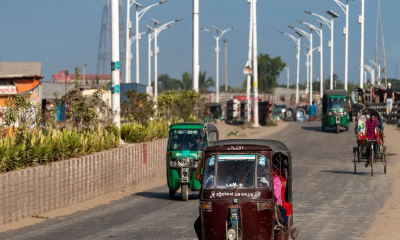
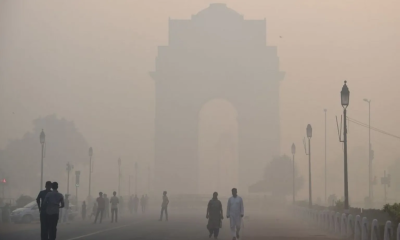
-20251226051932.jpeg)
-20251222051606.jpeg)





